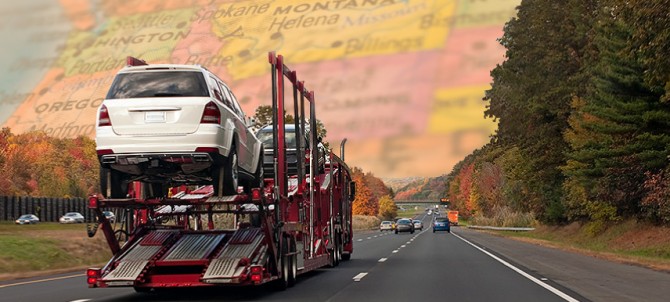Is an Enclosed Auto Carrier Worth the Extra Cost
When comparing automobile transportation methods and prices, an enclosed auto carrier is a likely option. You may wonder if it’s worth the additional expense, and the answer to that question depends on the car to be shipped, as well as the vehicle’s actual and sentimental value. Read on to get some tips on assessing the feasibility of hiring an enclosed auto carrier.
Keep an Eye to the Sky
Shipping a car is a good choice if you’re moving far away, but that decision comes at a time when costs are already high. Some may wonder if they can save by choosing an open carrier instead, and it can be beneficial in certain cases. If you’re shipping an exotic, rare or classic car, enclosed transport is the way to go. Weather can shift in a minute, and things like sandstorms, hail and high winds are common. Such weather events can cause serious damage to a car, and most insurers won’t cover the cost.
Look Out for Road Debris
It’s quite common, especially in isolated areas, for debris to be disturbed by passing vehicles. While the chance of damage might be less than if you chose to move the car yourself, it’s possible—as is theft or vandalism in urban areas. It’s worthwhile to plan for the worst-case scenario, and planning can help you avoid unpleasant surprises.
Ask About Insurance Coverage
Before signing a shipping agreement you should be sure to ask for a copy of the carrier’s insurance info, to ensure that your car will be covered if a loss or damage occurs. Ask the motorcycle shipping company what their insurance covers, and what type of events or accidents are included. Claims history is important as well; a company who makes frequent claims may not be as careful with your vehicle as you’d like them to be.
Inspect Your Car On Delivery
If you’re meeting your carrier at the destination or the car’s being shipped to you, don’t forget to evaluate it before signing off on the paperwork. Check for damage, making a note of any that wasn’t there before shipping. If the car’s going to its new owner or a restoration shop, ensure that the receiver inspects the car and notes the damage description that was submitted upon loading.
Many companies that deal with classic car shipping, as well as those with substantial insurance, may use enclosed carriers to shield themselves from claims that arise from debris, weather, theft and vandalism. While it might seem like a good deal to skip the enclosed carrier, one averted accident will make all the extra expense worthwhile.

